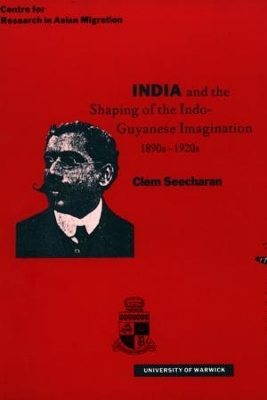When the first East Indian intellectuals emerged in British Guiana at the end of the nineteenth century, most of their compatriots were still working as indentured or free labourers on the colony's sugar estates. Indians were conscious that they were looked down on as barbarous 'coolies' by other sections of the population. In response, the intellectual elite constructed a view of India, drawn from the writings of Max Muller and Tagore, which provided the Indo-Guyanese community with a sustaining sense of self-esteem and the sources of its resistance to colonialism.
Focusing on individuals such as Joseph and Peter Ruhomon, JA Luckhoo and WH Wharton, the study looks at the way the beginnings of the nationalist movement in India stimulated such individuals to start defining the nature of their presence in the New World. Seecharan argues that while the vision of 'Mother India' stimulated the community's cultural revival, it constrained the way it thought about Guyana.
"Dr. Seecharan's research is meticulous and his analysis penetrating. This is why, despite its specific Indian focus and slender look, India offers much insight into the broader history of Guyanese society as a whole."
Frank Birbalsingh
Clem Seecharan was born in Guyana. He currently teaches on the Caribbean Studies programme at the University of North London.
- ISBN10 0948833610
- ISBN13 9780948833618
- Publish Date 1 December 1993
- Publish Status Active
- Publish Country GB
- Imprint Peepal Tree Press Ltd
- Format Paperback
- Pages 98
- Language English
